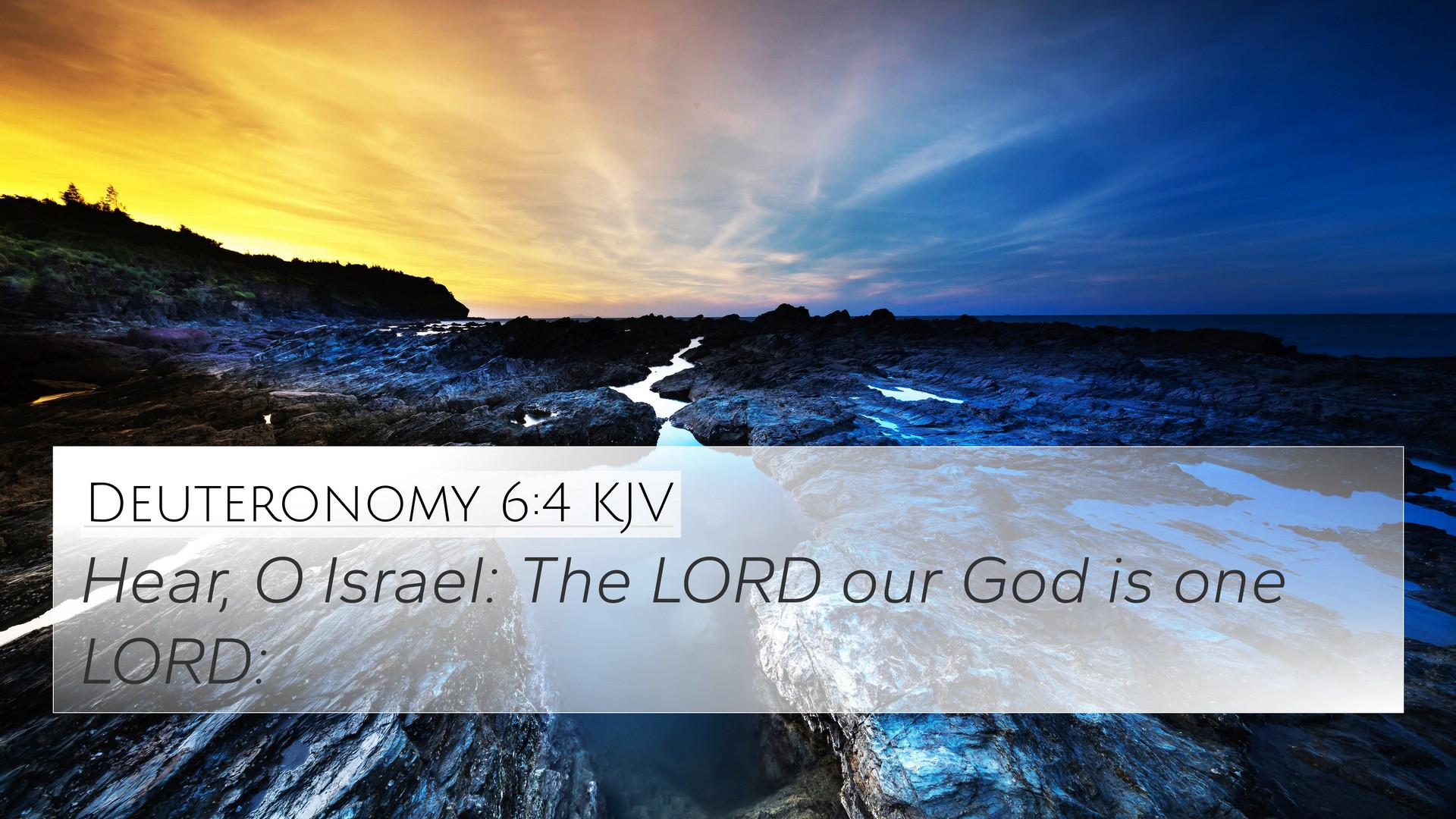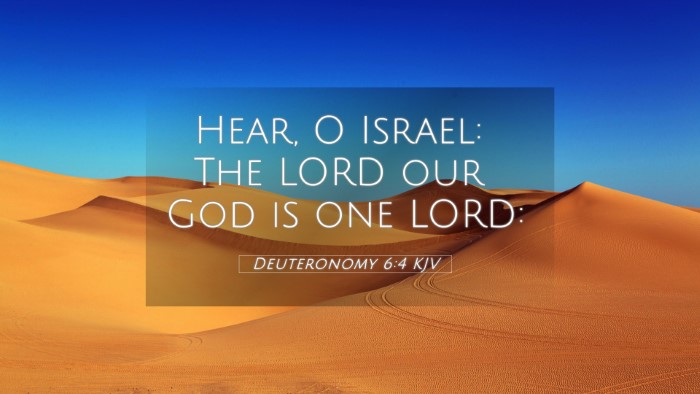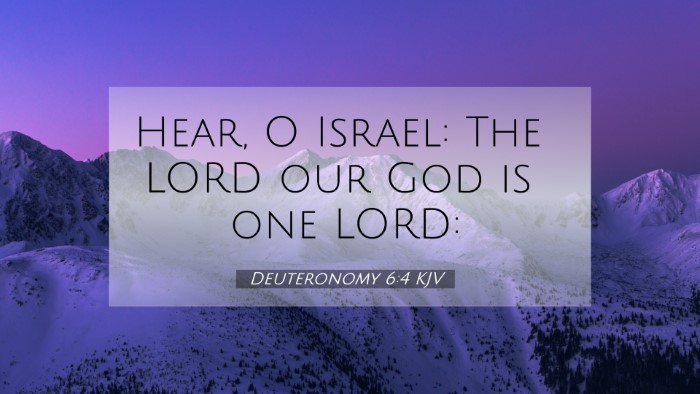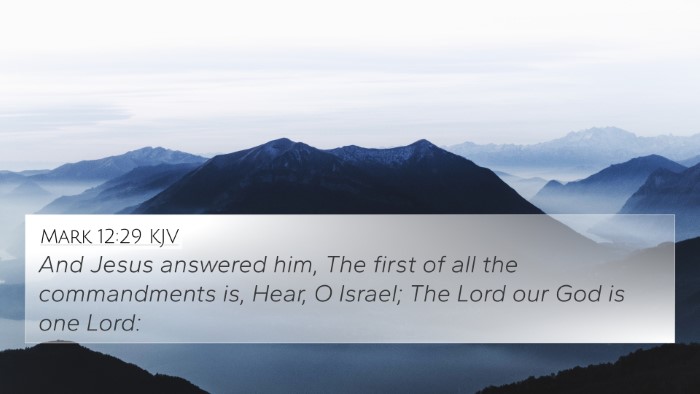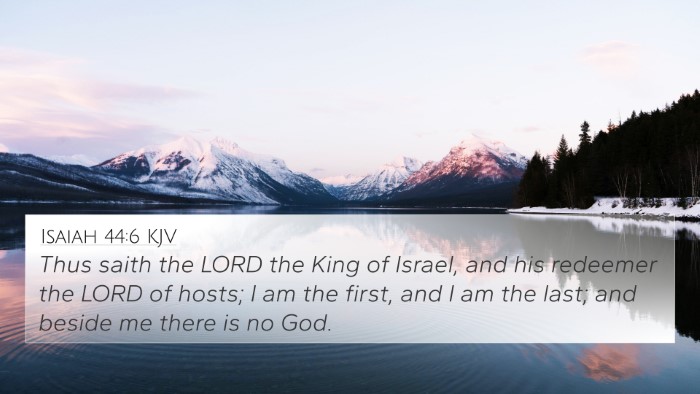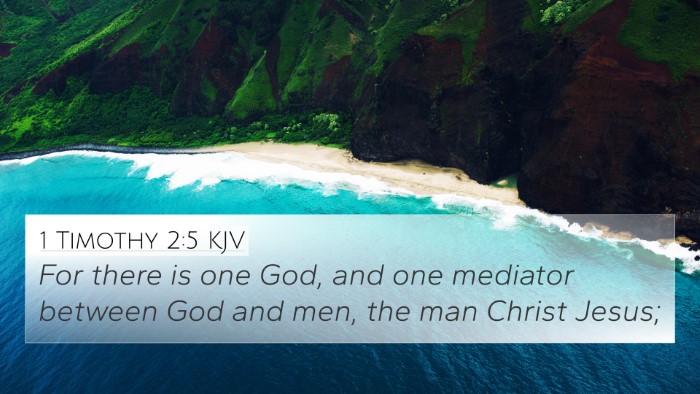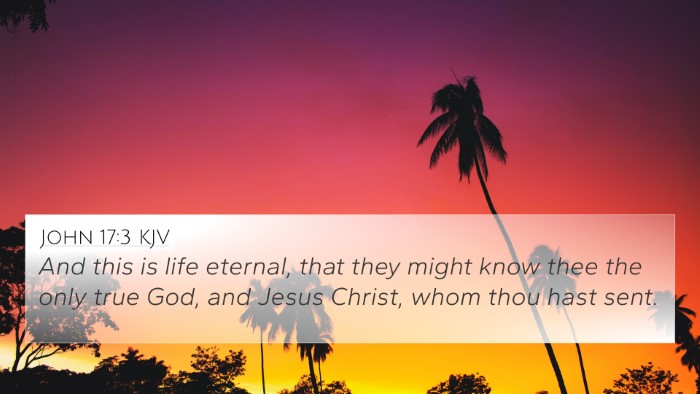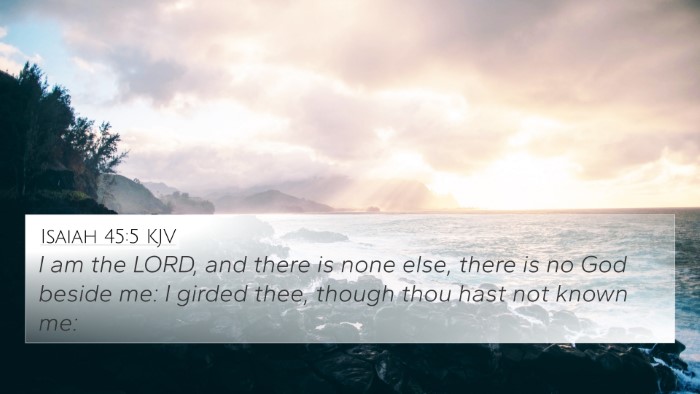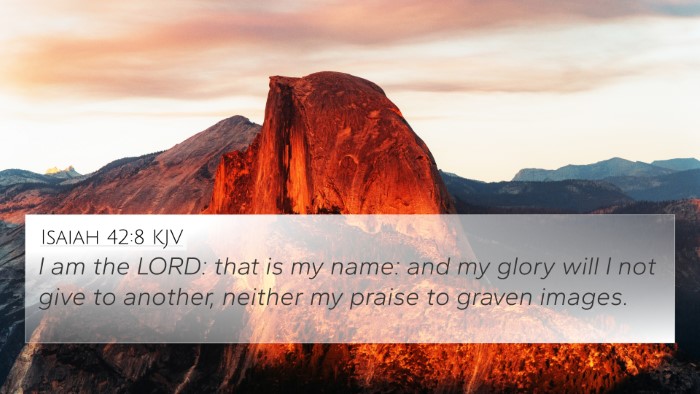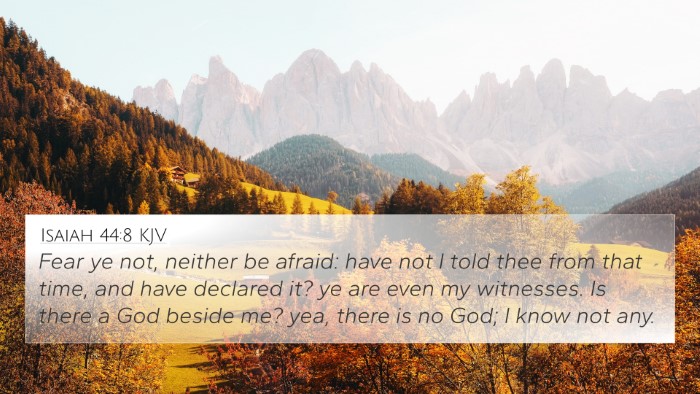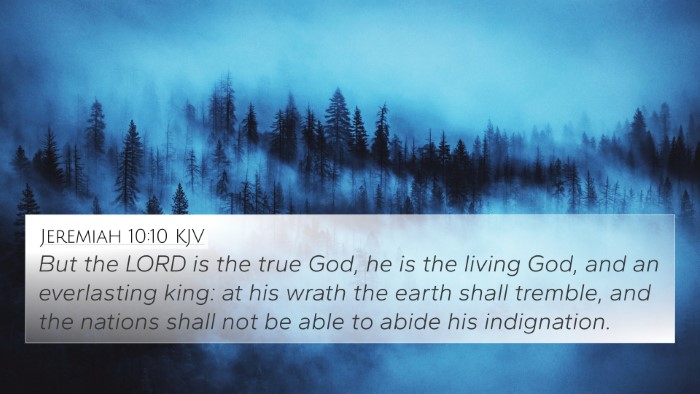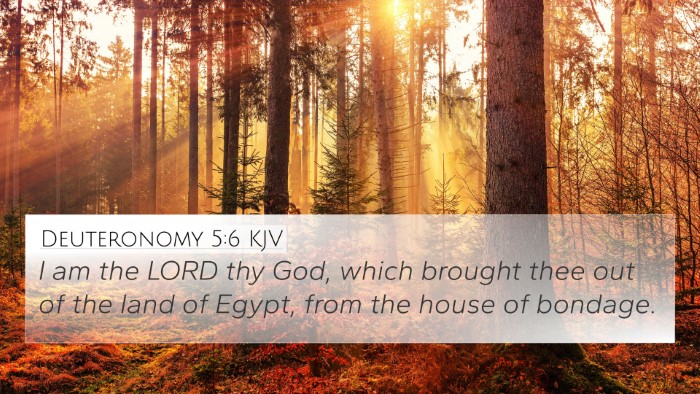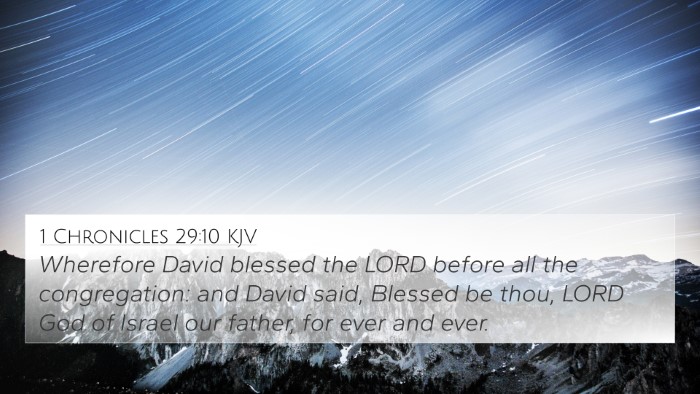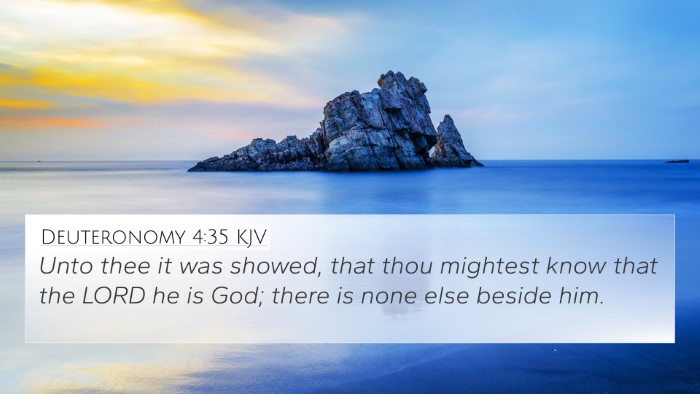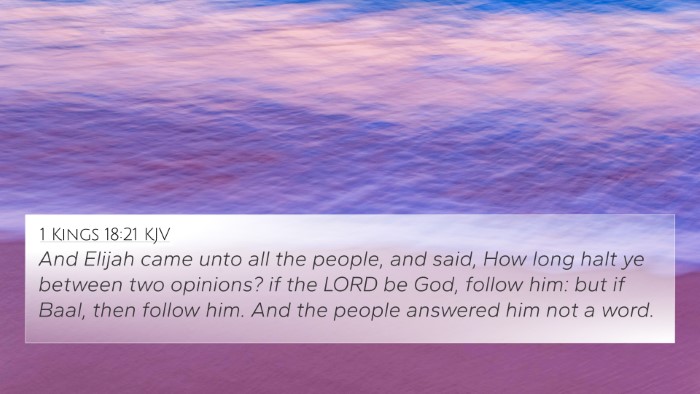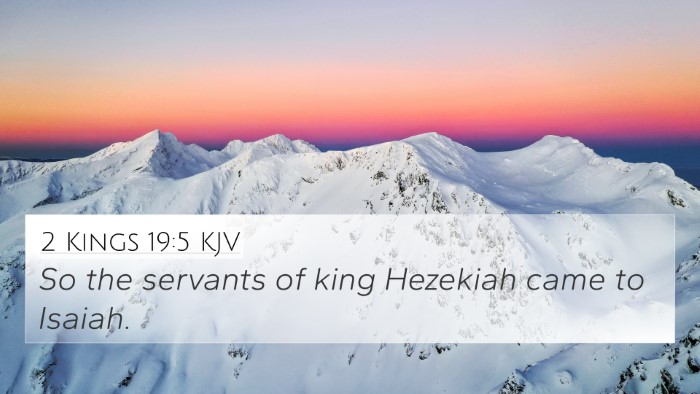Understanding Deuteronomy 6:4
Verse: Deuteronomy 6:4 - "Hear, O Israel: The LORD our God is one LORD."
This verse is known as the Shema, a foundational declaration of the Jewish faith. It emphasizes the oneness of God, which is central to both Judaism and Christianity. Below, we explore the verse's meaning through various public domain commentaries.
Exegesis of Deuteronomy 6:4
The verse urges Israel to listen and comprehend the unique nature of their God. Matthew Henry highlights that "Hear" implies more than just auditory reception; it calls for a heart and soul commitment to understanding and obeying God’s singular nature. Henry elaborates that this verse is not only declarative but also instructive, calling believers to recognize God's sovereignty and exclusivity.
Insights from Commentaries
-
Matthew Henry:
According to Henry, the oneness of God signifies His singularity in essence and purpose, contrasting sharply with the polytheistic beliefs surrounding Israel. This establishes a groundwork for exclusive worship, reinforcing that true worship must only be directed towards this one God.
-
Albert Barnes:
Barnes provides a detailed interpretation of "one LORD," emphasizing that it conveys unity and continuity. He asserts that God's oneness is not simply a theological concept but requires an active response from believers to love and serve Him above all else.
-
Adam Clarke:
Clarke discusses the implications of God's oneness in daily life and worship. He notes that understanding God as one encapsulates the arguments against idolatry and serves as a proclamation of faith meant to unify the community in worship and adherence to God's covenant.
Thematic Connections and Cross-References
Deuteronomy 6:4 stands as a pivotal verse in Scripture. Its themes resonate throughout both the Old and New Testaments, establishing a framework for understanding the character of God and our relationship with Him.
Cross-Referenced Bible Verses
- Isaiah 45:5: "I am the LORD, and there is no other; apart from me there is no God." - Reinforces the uniqueness of God.
- Mark 12:29: "The most important one," answered Jesus, "is this: 'Hear, O Israel: The Lord our God, the Lord is one.'" - Jesus affirms the Shema.
- 1 Corinthians 8:4-6: "We know that an idol is nothing at all in the world and that there is no God but one." - Connects to the concept of God's singularity.
- Ephesians 4:5: "One Lord, one faith, one baptism." - Emphasizes unity in the Christian faith.
- James 2:19: "You believe that there is one God. Good! Even the demons believe that—and shudder." - Acknowledges God's oneness even among spirits.
- Romans 3:30: "Since there is only one God, who will justify the circumcised by faith and the uncircumcised through that same faith." - Affirming God's singular method of salvation.
- John 17:3: "Now this is eternal life: that they know you, the only true God, and Jesus Christ, whom you have sent." - Connects knowledge of God with eternal life.
Theological Implications
The Shema serves several vital theological functions:
-
Monotheism:
The declaration "one LORD" firmly establishes the Jewish belief in a singular deity, distancing it from surrounding pagan ideologies.
-
Identity:
Understanding God’s oneness is crucial for defining Israel's identity as God’s chosen people, establishing a covenantal relationship.
-
Faith and Practice:
The Shema not only informs belief but dictates practice. It is a directive towards love and obedience, noted in subsequent verses (Deuteronomy 6:5).
Practical Applications
Incorporating the essence of Deuteronomy 6:4 into daily life can enhance spiritual growth:
-
Faithfulness:
Affirming God’s oneness reminds believers to remain faithful and resist distractions from idolatries of the world.
-
Community:
It encourages communal worship and sharing of faith as one body under one God.
-
Teaching:
The verse mandates passing on the truth of God’s character to future generations (Deuteronomy 6:7).
Conclusion
Deuteronomy 6:4 is foundational in understanding the nature of God and the devotion demanded from His people. The integration of insights from various commentaries emphasizes that this verse provides essential guidance for both personal faith and community identity. By exploring connections between this and other verses, we realize the broader narrative of Scripture that continually points to the oneness and supremacy of God. Utilizing tools for Bible cross-referencing can greatly enrich our understanding of such pivotal verses and their implications for today’s believers.
Further Study Suggestions
To delve deeper, consider:
- Utilizing a Bible concordance to identify related verses.
- Engaging in cross-reference Bible study methods to explore themes and connections.
- Participating in discussions surrounding inter-Biblical dialogue based on the implications of God's oneness.
